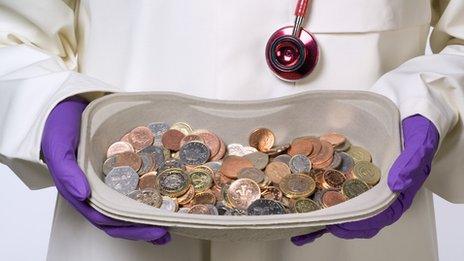Virtually all hospitals now in deficit
- Published

Nearly every hospital in England is now in deficit as financial problems in the NHS threaten to spiral out of control.
Of the 138 hospital trusts, just seven are still in surplus according to the 2015-16 third quarter accounts, which cover April to December.
The figures also showed a total NHS trust overspend of £2.26bn once ambulance, mental health and community services were taken into account.
Experts said performance was deteriorating at an "alarming rate".
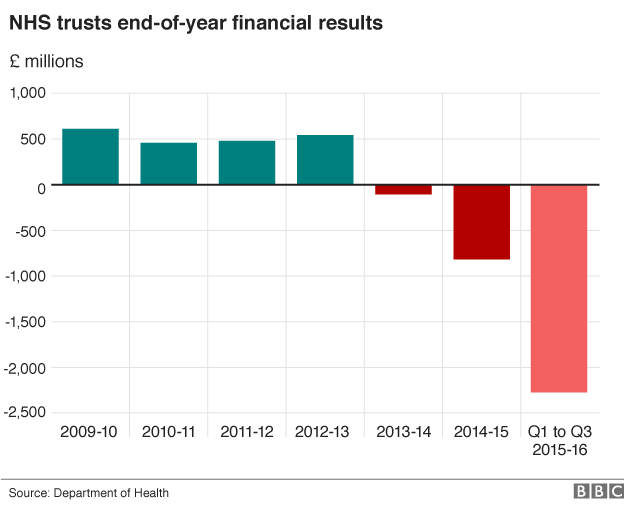
The deficit is already nearly triple what it was for the whole of the 2014-15 - and means the NHS is on track for one of its largest ever overspends.
The figures - released by NHS regulators Monitor and the Trust Development Authority - cover 240 trusts in total, which between them they account for about two-thirds of the NHS's £116bn budget.
The rest is spent on other areas including GPs, drug prescribing, public health and training.
Adam Roberts, of the Health Foundation think tank, said: "These figures are beyond dire. A comprehensive national plan is urgently needed."
The situation raises the prospect of the Department of Health failing to balance the overall books, which would be a huge embarrassment given the extra money the NHS is getting.
In autumn's spending review the government announced the NHS would get an extra £8.4bn this Parliament. A big chunk of that, £3.8bn, is being put in next year.

Does it matter if the NHS overspends?

Hospitals and other health services are not like a businesses. They're not going to just go bust as the government can always step in.
But the financial problems do matter. The deficits being racked up are massive. You probably have to go back to the early 1950s to find a similar scale of overspending - and that led to charges being brought in for spectacles, dentistry and prescriptions.
This time the impact is likely to be felt in terms of what doesn't happen. The government has promised the NHS extra money in the coming years to help it cope with demand and transform itself to become fit for the 21st century.
But if that goes on paying off debts, the NHS will be on the back foot straight away. The risk then is that a vicious circle develops with the service never quite being able to catch up. If that happens, the choices are stark: spend even more or cut back.

Last year the NHS finished over £800m in the red - with the health service as a whole balancing the books only after a cash injection from the Treasury and by raiding the capital budget earmarked for buildings.
The financial report released said the NHS was on track for a £2.8bn deficit which, if savings could be made in the final three months, could be brought down to under £2.4bn.
Overspending on agency staff has been highlighted as one of the major problems as well as rising demand for services.
Missed targets
The news comes at a difficult time for the NHS. Performance is already suffering with many of the major targets, including ones for A&E, ambulances, routine operations and cancer care, being missed.
Jim Mackey, from the regulators, said the figures were "disappointing" but maintained there were signs trusts were beginning make savings.
But Paul Healy, of the NHS Confederation, which represents managers, said there was a limit to how much individual organisations could do.
He said transforming the system to reduce the demand on hospitals by keeping people well in the community was now an "absolute necessity".
A Department of Health spokesman said an on-going clampdown on agency staff and management consultants would help trusts.
He also urged hospital bosses to "show financial grip" by introducing the recommendations of the Lord Carter review on productivity which was published earlier this month.
"We know finances are challenging, but this government is committed to the NHS and its values," he added.
- Published16 December 2015

- Published20 November 2015
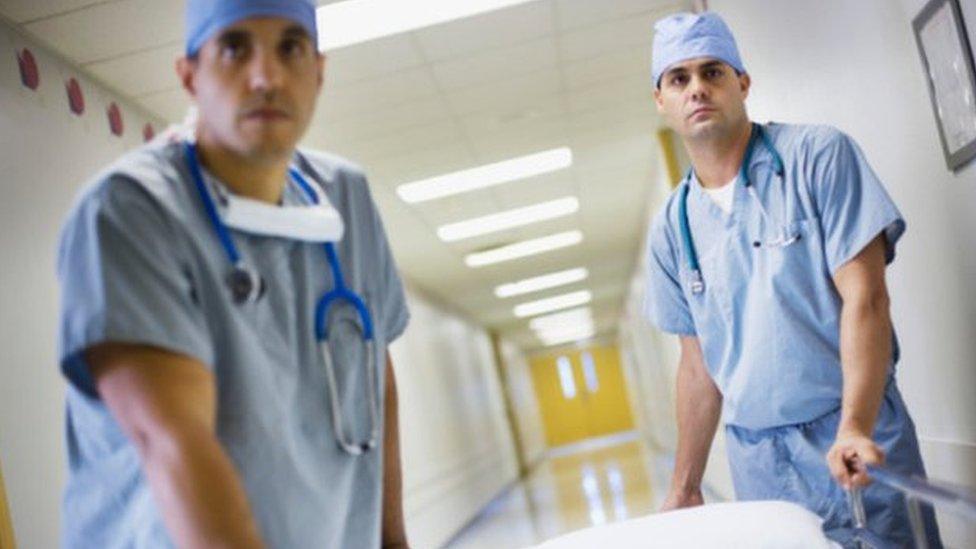
- Published9 October 2015
- Published21 February 2015
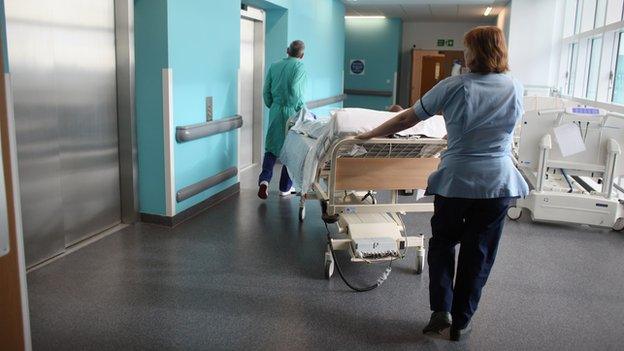
- Published8 March 2014
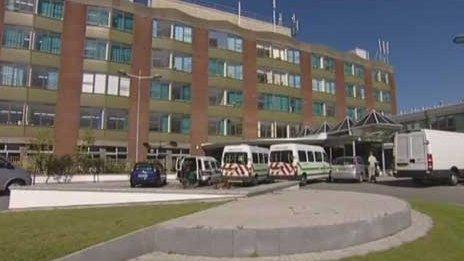
- Published19 September 2014
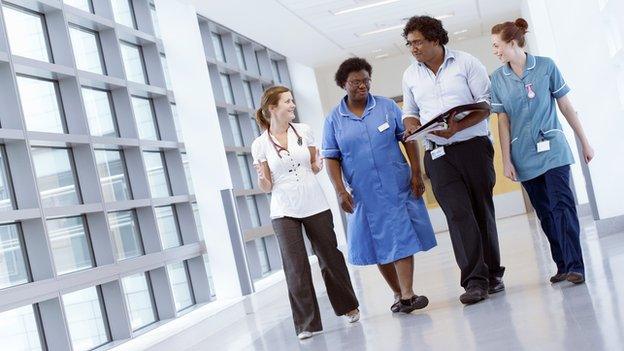
- Published18 June 2014
